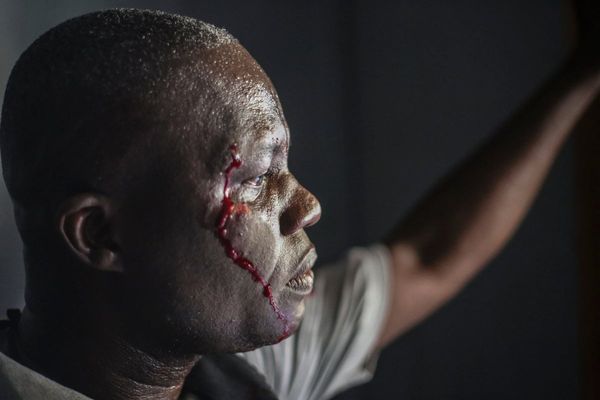
McLaren team principal Andrea Stella believes the Ferrari-esque culture at the team is helping it compete for the constructors’ title heading into the season-ending Abu Dhabi Grand Prix.
Having not won the team championship since 1998, McLaren can end that barren run at the Yas Marina Circuit, where it heads into the grand prix weekend 21 points clear of Ferrari.
Lando Norris is second in the drivers’ championship, having pushed four-time winner Max Verstappen further than anyone else this year but the team has had its eye on the constructors’ prize all season.
Taking the crown would seal a remarkable turnaround for McLaren, which finished a distant fourth in the standings last year.
Stella, a former performance and race engineer at Ferrari, was asked what the main differences are between the two squads – but the Italian instead focused on what he saw as the shared cultures.
“[It is an] Interesting question, because when we talk about culture, there's many angles, many aspects that you can consider to define the culture,” he said ahead of the Abu Dhabi Grand Prix.
“But actually, before we talk about the differences, I would say that there are some fundamentals that are very, very similar. The commitment of the people, the passion.
“Sometimes I hear like the passion in the Italian team and more of a cold approach [here], which I can definitely say that's not true.”

Stella previously worked alongside world champions Michael Schumacher and Kimi Raikkonen at Ferrari and was part of Scuderia when it last won the constructors’ title in 2008.
“The motivation, the passion that we have in the McLaren team is definitely comparable with what I was used to when I was at Ferrari,” he said.
“Striving for excellence is something that is in common. It's an easy conversation to have with people saying we need to raise the bar and everyone understands and everyone tries their best. So actually for me, moving from one team to the other, I didn't have to think in a different way.
“I think what I've definitely found that was very powerful at McLaren was that when we had agreement, when we identified common solutions, when we put in place some kind of, let's call it, rules, behaviours, or what altogether, principles, that can form the culture, then I think the team members, the people were pretty consistent in sticking with what was agreed.
“And in this sense, this made progress easy. It was possible to progress based on plans. It was possible to progress based on what we agreed all together that should have been the journey of the team."
Photos from Abu Dhabi GP Practice

2024 Abu Dhabi Grand Prix - Saturday

2024 Abu Dhabi Grand Prix - Saturday

2024 Abu Dhabi Grand Prix - Saturday

2024 Abu Dhabi Grand Prix - Saturday

2024 Abu Dhabi Grand Prix - Saturday

2024 Abu Dhabi Grand Prix - Saturday

2024 Abu Dhabi Grand Prix - Saturday

2024 Abu Dhabi Grand Prix - Saturday

2024 Abu Dhabi Grand Prix - Saturday

2024 Abu Dhabi Grand Prix - Saturday

2024 Abu Dhabi Grand Prix - Saturday

2024 Abu Dhabi Grand Prix - Saturday

2024 Abu Dhabi Grand Prix - Saturday

2024 Abu Dhabi Grand Prix - Saturday

2024 Abu Dhabi Grand Prix - Saturday

2024 Abu Dhabi Grand Prix - Saturday

2024 Abu Dhabi Grand Prix - Saturday

2024 Abu Dhabi Grand Prix - Saturday

2024 Abu Dhabi Grand Prix - Saturday

2024 Abu Dhabi Grand Prix - Saturday

2024 Abu Dhabi Grand Prix - Saturday

2024 Abu Dhabi Grand Prix - Saturday

2024 Abu Dhabi Grand Prix - Saturday

2024 Abu Dhabi Grand Prix - Saturday

2024 Abu Dhabi Grand Prix - Saturday

2024 Abu Dhabi Grand Prix - Saturday

2024 Abu Dhabi Grand Prix - Saturday

2024 Abu Dhabi Grand Prix - Saturday

2024 Abu Dhabi Grand Prix - Saturday

2024 Abu Dhabi Grand Prix - Saturday

2024 Abu Dhabi Grand Prix - Saturday

2024 Abu Dhabi Grand Prix - Saturday

2024 Abu Dhabi Grand Prix - Saturday

2024 Abu Dhabi Grand Prix - Saturday

2024 Abu Dhabi Grand Prix - Saturday

2024 Abu Dhabi Grand Prix - Saturday

2024 Abu Dhabi Grand Prix - Saturday

2024 Abu Dhabi Grand Prix - Saturday

2024 Abu Dhabi Grand Prix - Saturday

2024 Abu Dhabi Grand Prix - Saturday

2024 Abu Dhabi Grand Prix - Saturday








